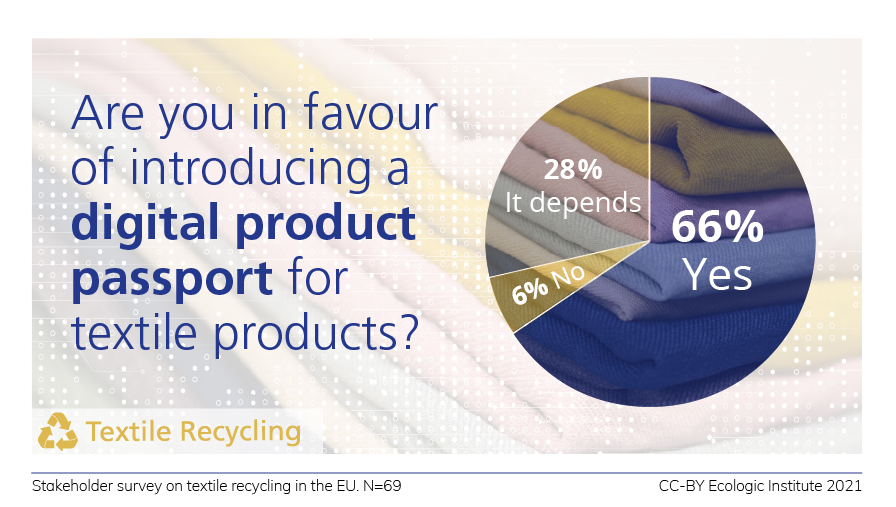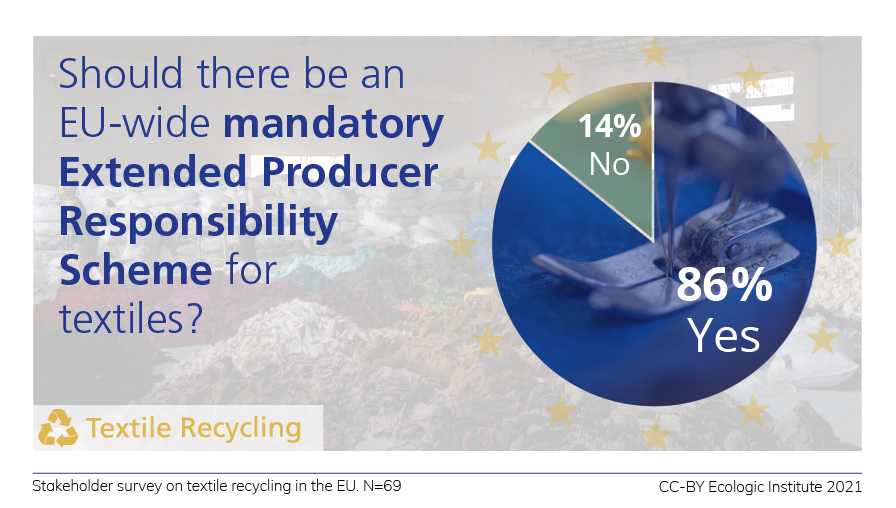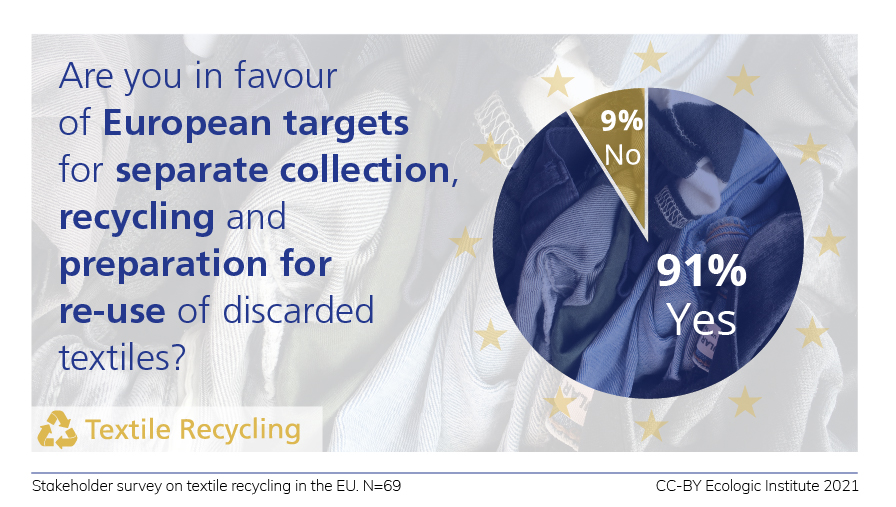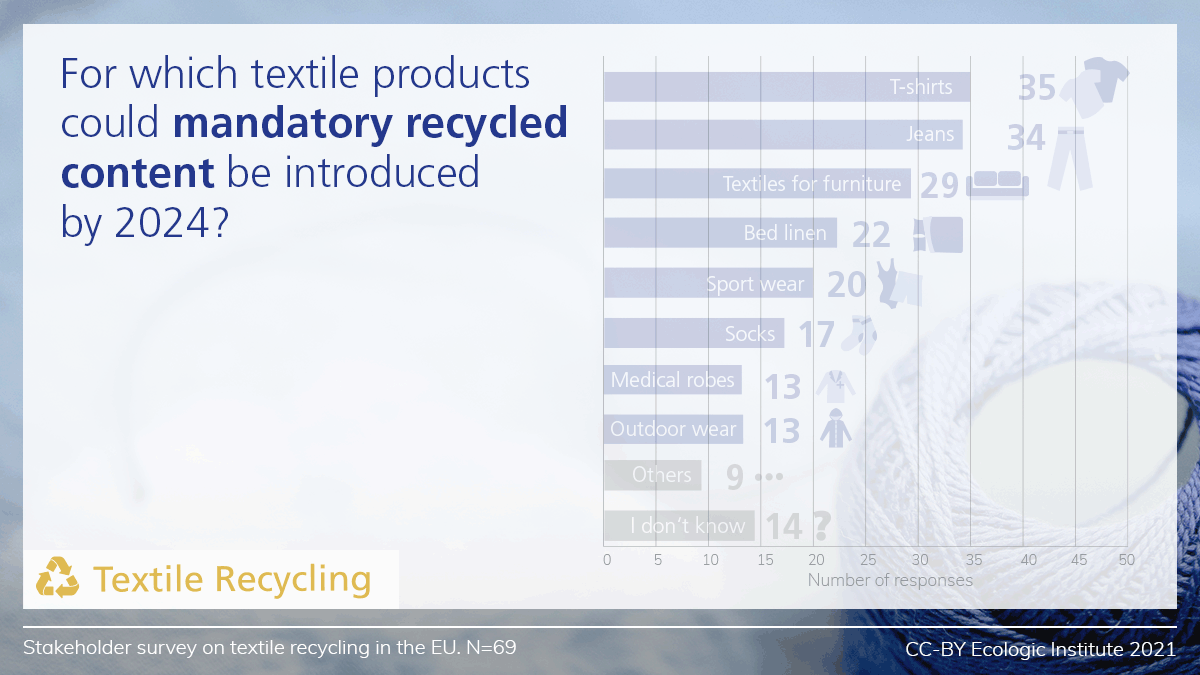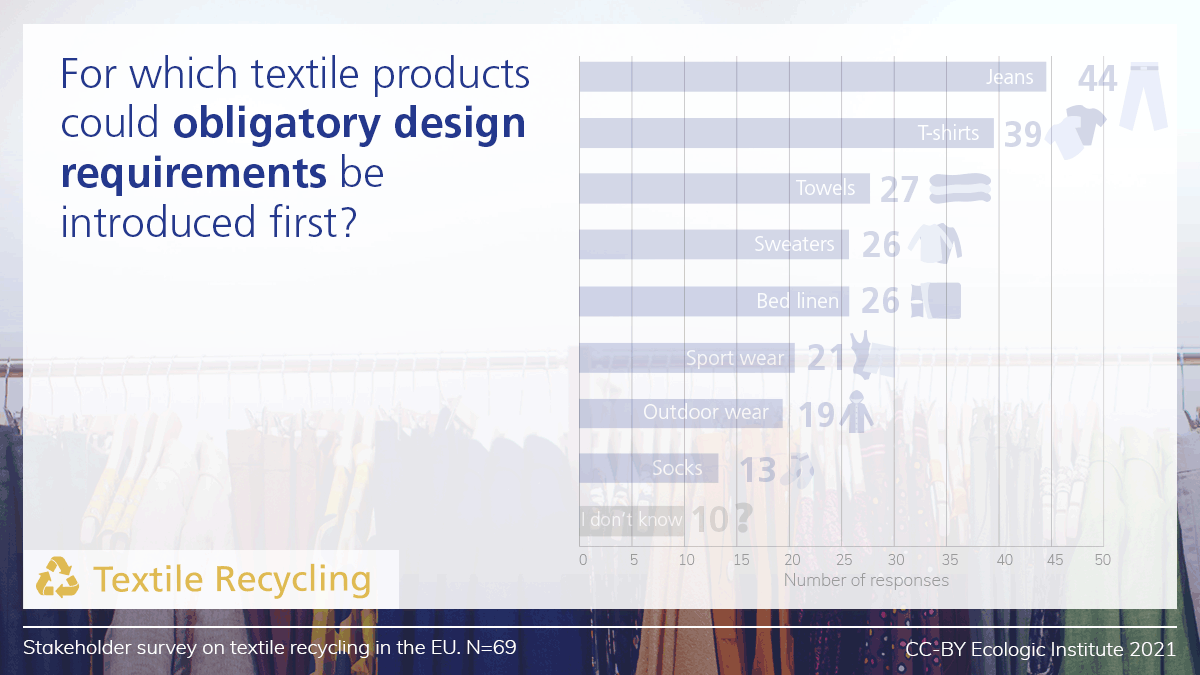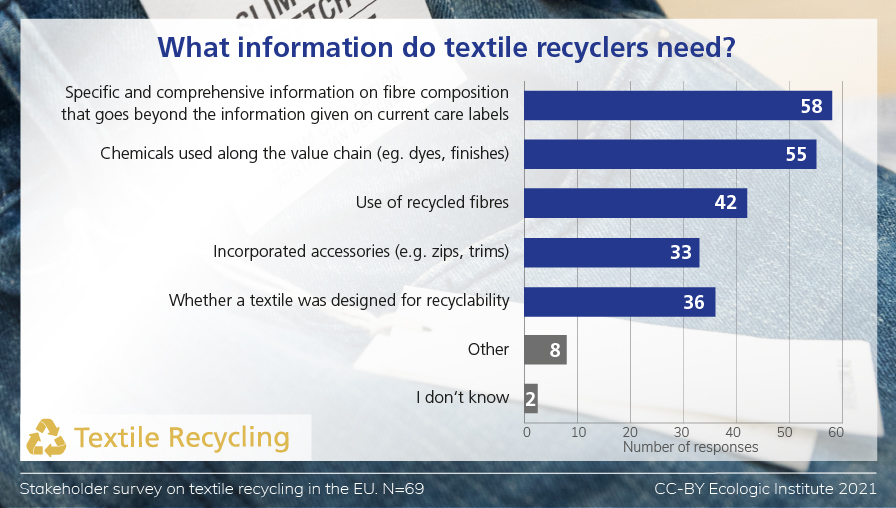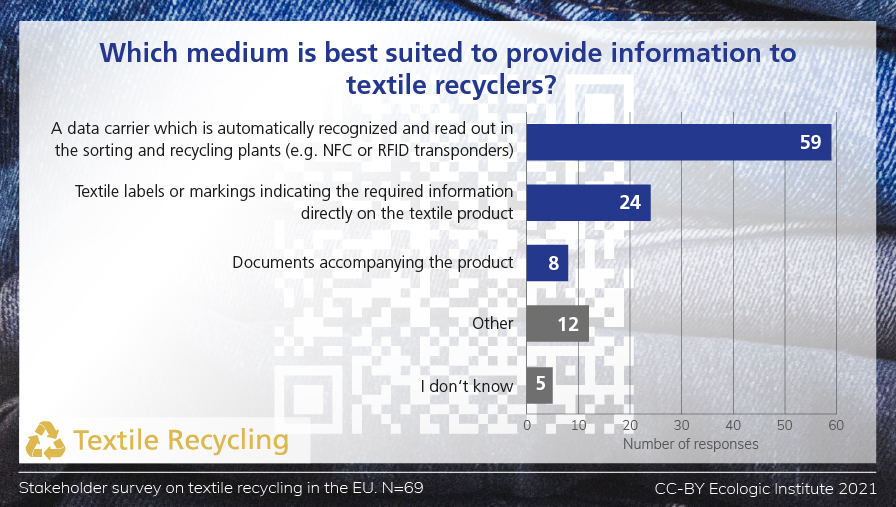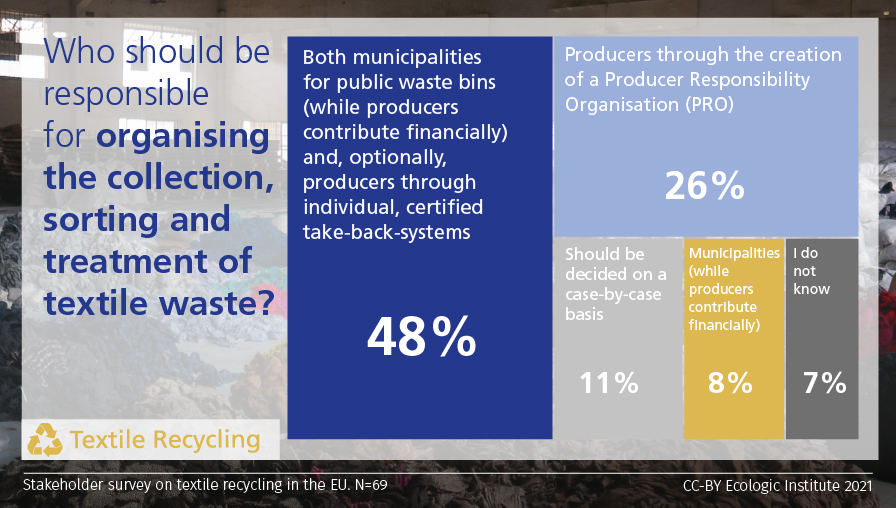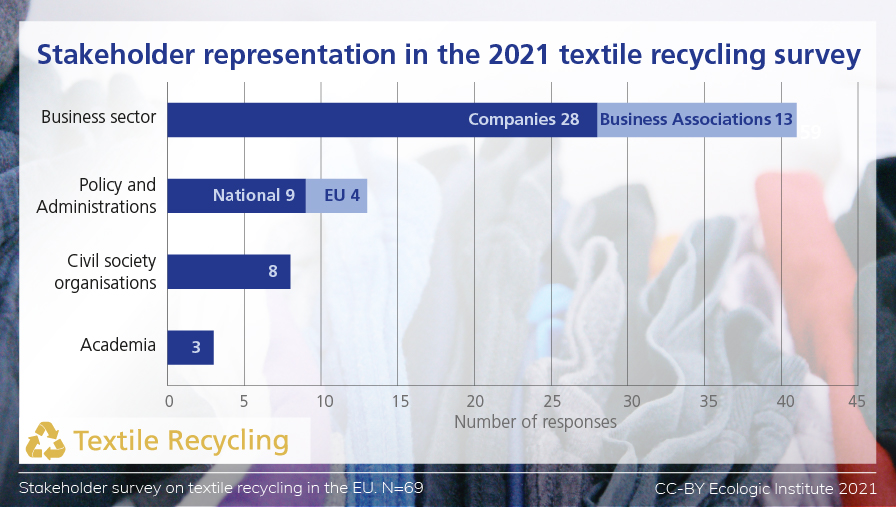Background image by Alejo Reinoso on Unsplash
Study on the Technical, Regulatory, Economic and Environmental Effectiveness of Textile Fibres Recycling
Final Report
- Publication
- Citation
Duhoux, Tom et al. 2021: Study on the technical, regulatory, economic and environmental effectiveness of textile fibres recycling. Final Report to the European Commission, Directorate-General for Internal Market, Industry, Entrepreneurship and SMEs. European Commission: Brussels.
A knowledge base on the effectiveness of textile-to-textile recycling technologies
The textile industry is facing the challenge of reducing its environmental footprint and social burden along global value chains. In the European Union, work is already underway to establish a more circular and sustainable textile economy. What role can textile-to-textile recycling play in this? What potential does it have from a technical, environmental and economic perspective for the EU textile and clothing industry?
This report aims to improve the knowledge about opportunities and challenges of textile waste recycling technologies, developed and applied at global and EU level. The report sheds light on the technical feasibility and maturity for market uptake of textile-to-textile recycling technologies – including mechanical and chemical recycling approaches. In recent years, considerable advances have been made in recycling and sorting technologies. The report also evaluates their economic and environmental effectiveness. In addition, the report identifies promising areas for future research, such as the dispersion and recovery of chemical substances or the development of alternatives for elastane. Finally, the report outlines necessary steps to support the industrial uptake of textile recycling technologies and circular business models, including for example support for (cross-) value chain collaboration.
Key policy options to enhance textile-to-textile recycling in the EU
In Chapter 6, Ecologic Institute provides policy makers with an in-depth analysis of bottlenecks and enablers for textile-to-textile recycling in the EU. The authors identified barriers and gaps in current EU policy that might hamper or slow down the uptake of innovative recycling technologies and business models. Next, the authors elaborated key policy options aiming to enhance textile recycling as part of a circular textile economy in the EU. These include:
- Enhancing traceability of materials and chemicals used in textiles
- Promoting design for recyclability
- Easing access to feedstocks for textile-to-textile recycling
- Stimulating the demand for recycled fibres
- Setting a frame with clear long-term direction
As part of the research, stakeholder feedback from the European textile sector was gathered through interviews, webinars and an online survey. Overall, the participating stakeholders distinctly signaled to be open and prepared for ambitious policy approaches. For example, 91% were in favour of introducing EU targets for separate collection, recycling and preparation for reuse of discarded textiles. 66% were in favour of introducing a digital product passport for textiles in order to increase traceability of used materials and chemicals along the value chain. Also, a mandatory recycled content for specific textile products – such as jeans and T-shirts – was considered useful to stimulate demand for recycled fibres.
The study aims to inform future policy development – in particular with regard to ongoing policy processes at EU-level with relevance for the textile sector, such as the upcoming EU Strategy for Sustainable Textiles, the Sustainable Products Initiative and the further development of the Circular Economy Action Plan.
The report presents the final outcomes of the research project "Technical, Regulatory, Economic and Environmental Effectiveness of Textile Fibres Recycling", assigned by the European Commission (DG GROW). The research was conducted in cooperation by VITO, Centexbel and Ecologic Institute. The complete report is freely available for download.




